-
Saudi Arabia leads effort to create a Muslim NATO-like alliance
Saudi Arabia has approached thirty-four Muslim-majority countries with a proposal to create a NATO-like military alliance of Islamic countries to combat terrorism. The proposed alliance would not be formed to confront any country in particular, but rather would be put together for the purpose of combatting terrorism. It is unclear whether Iran will be invited to join the new alliance.
-
-
Remote detection of radioactive materials
National security experts believe terrorists continue to be interested in such devices for terror plots. Now researchers have proposed a new technique remotely to detect the radioactive materials in dirty bombs or other sources. It is the increased ion density that the researchers aim to detect with their new method. They calculate that a low-power laser aimed near the radioactive material could free electrons from the oxygen ions.
-
-
Death of ISIS’s most senior military leader confirmed
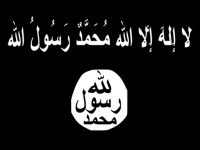
A senior ISIS leaders, Omar the Chechen, has died after being seriously injured in a U.S.-led coalition strike in northeastern Syria, the Pentagon confirmed Monday. The Pentagon’s announcement clears up the fate of Omar al-Shishani a week after a U.S. official said the most-wanted militant had been targeted in a 4 March attack on the jihadist’s convoy. Shishani was one of the most-wanted ISIS leaders, and the United Stateshas put a $5 million reward on his head.
-
-
American ISIS fighter captured in northern Iraq
Muhammad Jamal Amin, a 27-year old American from Virginia who joined ISIS and fought in its ranks, was taken into custody in northern Iraq. He was captured by Kurdish forces after trying to cross into Turkey. Amin is the first American fighting with ISIS to have surrendered in the field.
-
-
1,500 people killed in 160 documented chemical attacks in Syria since 2011
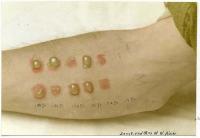
The Syrian American Medical Society (SAMS) earlier today (Monday) released a report detailing 161 chemical attacks in Syria since the conflict emerged in 2011. These attacks have killed nearly 1,500 people in Syria, according to the report. A UN war crimes expert says the documentation of the attacks will allow for international prosecution in the future.
-
-
ISIS attacks Iraqi town with chemical weapons
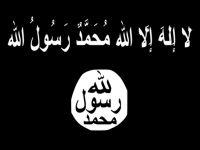
Iraqi officials has said that ISIS has launched two chemical attacks near the city of Kirkuk in northern Iraq, killing a three-year-old girl and wounding up to 600 people. The chemical attacks took place early Saturday in the town of Taza, security and hospital officials said place early on Saturday in the small town of Taza. The town was struck by several rockets carrying the chemicals.
-
-
600 ISIS fighters killed in past three weeks: Kerry
Secretary of State John Kerry, in Paris for talks on the future of Syria, said that ISIS has lost 600 fighters and thousands of square kilometers of territory over the past three weeks. “In Syria, over the last three weeks alone, Daesh [ISIS] has lost 3,000 sq km (1,160 sq miles) and 600 fighters,” Kerry said.
-
-
Northcom’s first priority: “No-Fail” homeland defense
Homeland defense is the first priority of U.S. Northern Command, Navy Adm. William E. Gortney told members of the House Armed Services Committee last Thursday. Gortney named ISIS and whatever form it takes in the future, and transnational organized criminals who move drugs, people, weapons and anything else that will turn a profit as the most dangerous and likely threats to the nation.
-
-
ISIS bolsters its position in Libya by claiming to defend it against “foreign invaders”: UN
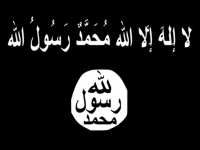
ISIS has greatly expanded its control over territory in Libya, and the Islamist militants are now claiming to be the defenders of the North African state against foreign military intervention, according to UN sanctions monitors. The number of ISIS fighters in the country is now estimated to be around 6,000.
-
-
U.K. to destroy biometric information of 45 terror suspects due to botched paperwork
British security agencies will have to destroy fingerprints and DNA of forty-five terror suspects because the police retained the biometric samples longer than the law allows. The law does allow the police to keep biometric information of terrorism suspects indefinitely, but certain paperwork must be completed within a certain period of time to allow that, and if the paperwork is not completed, the samples must be destroyed. A new report reveals that Britain holds biometric information and materials on nearly 8,000 suspects.
-
-
U.S. captures head of ISIS chem weapons unit; targets ISIS chem weapons infrastructure
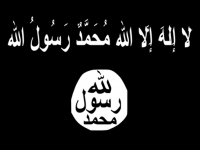
U.S. Special Forces operating in Iraq captured the head ISIS chemical weapons unit. Sleiman Daud al-Afari, who worked for Saddam Hussenin’s now-disbanded Military Industrialization Authority where he specialized in chemical and biological weapons, was captured during a raid near the northern Iraqi town of Tal Afar last month.American and Iraqi officials say that there are many indications that ISIS is working hard to develop chemical weapons.
-
-
Trump’s campaign rhetoric, ISIS and the law of war
Presidential candidate Donald Trump said that one reason the U.S. war against ISIS is “ineffective” is that “We’re fighting a very politically correct war.” Exactly what Trump is suggesting doing is not clear, but it is significant that Trump recently acknowledged that the U.S.“is bound by laws and treaties” and that as president he would “not order a military officer to disobey the law.” Instead, he said he would “seek [the] advice” of military and other officials. This is good news, and something all the candidates – and their critics – ought to embrace, as applying the law of war in the twenty-first century is much more complicated than many think. Words do matter, and where the nation’s security is concerned, no words can be more important..
-
-
Senior ISIS leader Abu Omar al-Shishani killed in U.S. strike
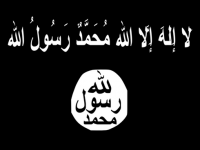
Abu Omar al-Shishani, a Syrian-based Georgian national who was a senior ISIS leader, was killed in a 4 March air strike by the U.S.-led coalition. U.S. officials said that the militant was killed near the Syrian town of al-Shadad. He had a reputation as a close military adviser to ISIS’s leader Abu Bakr al-Baghdadi, who relied heavily on Shishani.
-
-
ISIS plotted to kidnap Malaysia’s prime minister, other high officials
Ahmad Zahid Hamidi, Malaysia’s deputy prime minister, said Malaysia had foiled a plot by ISIS to kidnap government leaders, including the country’s prime minister. Hamidi to say that jihadists attempted to kidnap him and two other Malaysian officials — including the prime minister Najib Razak and the defense minister, Hishammuddin Hussein.
-
-
Secretive Area 6 used to test aerial radiation detection equipment
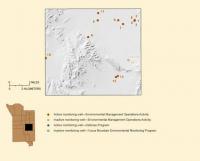
Top-secret Nevada site – even more secret than neighboring Area 51 — is used by Pentagon, DHS to test drones equipped with sensors to detect radioactive material which could be used in dirty bombs. The site, located in Yucca Flat, was once used for nuclear testing.
-
- All
- Regional
- Water
- Biometrics
- Borders/Immig
- Business
- Cybersecurity
- Detection
- Disasters
- Government
- Infrastructure
- International
- Public health
- Public Safety
- Communication interoperabillity
- Emergency services
- Emergency medical services
- Fire
- First response
- IEDs
- Law Enforcement
- Law Enforcement Technology
- Military technology
- Nonlethal weapons
- Nuclear weapons
- Personal protection equipment
- Police
- Notification /alert systems
- Situational awareness
- Weapons systems
- Sci-Tech
- Sector Reports
- Surveillance
- Transportation
Advertising & Marketing: advertise@newswirepubs.com
Editorial: editor@newswirepubs.com
General: info@newswirepubs.com
2010-2011 © News Wire Publications, LLC News Wire Publications, LLC
220 Old Country Road | Suite 200 | Mineola | New York | 11501
Permissions and Policies
Editorial: editor@newswirepubs.com
General: info@newswirepubs.com
2010-2011 © News Wire Publications, LLC News Wire Publications, LLC
220 Old Country Road | Suite 200 | Mineola | New York | 11501
Permissions and Policies
